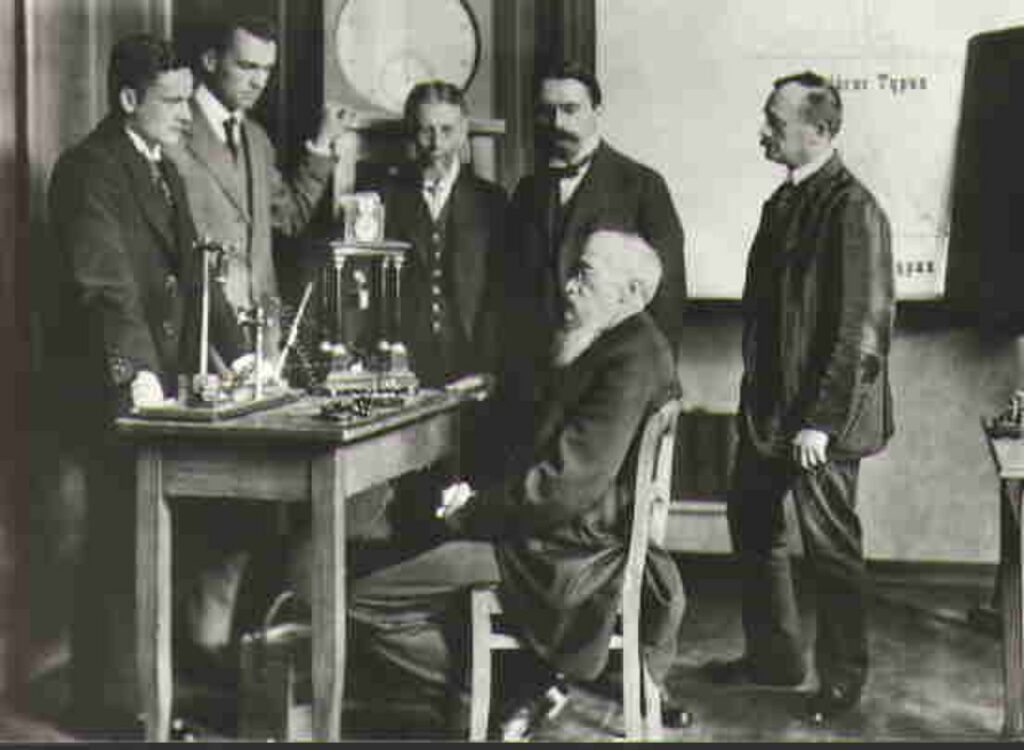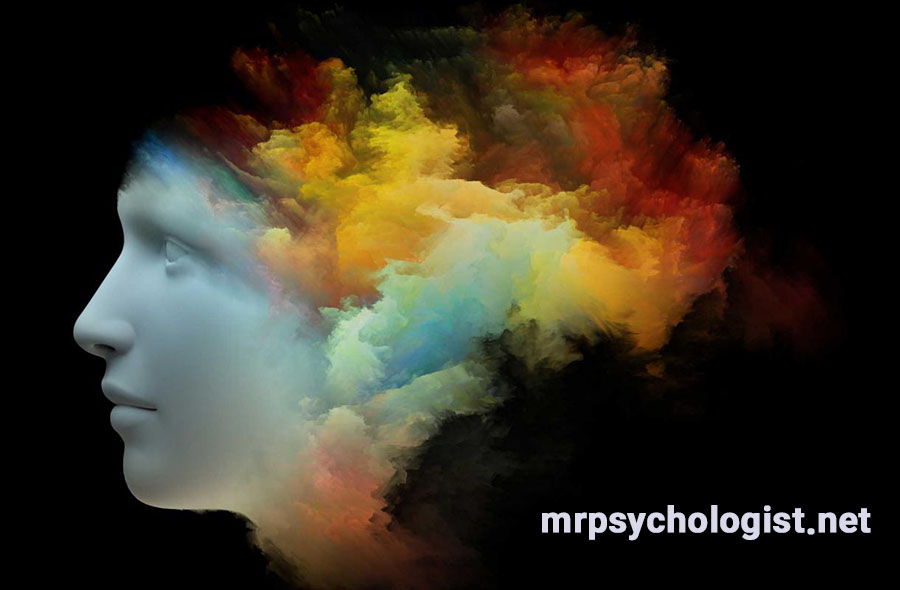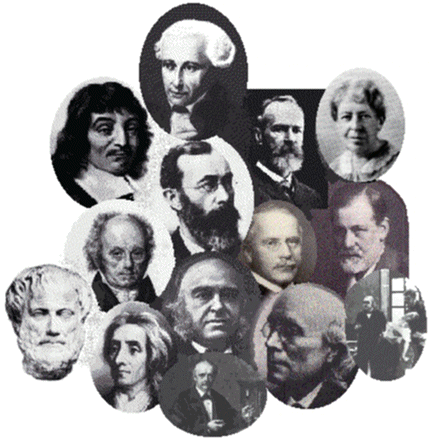Are you acquainted with the definition of psychology? Do you know what psychology is? Why do we procrastinate? Why don’t we avoid smoking and eating fattening food that makes us sick? Why do we shout at others and get easily angry? Why are we sometimes upset, but we struggle to find the reason? Psychologists’ attention draws to these questions. The science of Psychology closely connects to our everyday life. In this article, I will introduce this science’s definition, application, and branches in this article.
Etymology and symbol of psychology
The word psy+chology consists of two Greek words (ψυχολογία). It’s good to know that the word psyche (ψυχή) means soul, and it is not related to the words “mind and mentality.” However, the English language translates the word “psyche” into “mind” improperly.
The symbol of psychology is one of the Greek alphabets. This character is the 23rd letter of the Greek alphabet and is pronounced as “saai” (as in side).
A comprehensive definition of psychology
Psychology is the scientific study of mental processes and behavior.
The definition mentioned above reveals three points about the essence of psychology.
- It is a scientific study.
- It studies behavior scientifically.
- It studies mental processes.
As mentioned, psychology is a scientific field. Consequently, it establishes scientific principles and follows them like other areas that study behavior (observable) and mental processes (subjective). Behavior is how, whereas cognitive processes are hidden and happen inside the mind.
As we have learned from the quiddity of psychology, psychology is knowledge. So, like other branches of knowledge, it follows scientific principles. This knowledge studies behavior that is visual (objective) and mental processes that are conceptual (subjective). Behavior is all the reactions that occur to people. Behavior is obvious, and the mental process is hidden.
Objectives of psychology
Science is purely objective, and scientists pursue those goals. The primary goals of psychology are:
1. Describe the behavior
2. Explain the behavior
3. Predict behavior
4. Control behavior
1. Describe
The first objective is to describe the behavior and mental processes in simple terms. Describing the behavior and cognitive functions makes it possible to evaluate and assess them and determine whether they are normal or abnormal. Psychologists use various descriptive methods, like naturalistic observation, case studies, correlational studies, surveys, and self-report inventories. They employ descriptive sentences and concepts to convey those theories and viewpoints based on hypotheses. So describing mental processes and behavior helps us understand the nature behind them, and as a result, we find answers to questions like “what is suicide?” or “what is aggression?”.
2. Explain
Psychologists explain behavior and mental processes after describing them; Describing behavior answers “what” questions. However, to answer “why” questions, the behavior needs to be explained. Telling issues like “aggression” and “suicide” helps us gain more profound knowledge about their nature, whereas to know why they appear, we need to explain them.
3. Prediction
The third goal is to predict behavior and mental processes. We should predict how people think in different situations and react to various stimuli. For instance, some people assume that watching violent scenes (like boxing and wrestling) reduces aggression. However, studies have shown that if 9-year-old are willing to watch violent scenes, they are more likely to show aggressive behavior compared to their peers when they are 18.
4. Control
The most crucial goal of psychology is to control behavior and mental processes. We can only prevent abnormal behavior and reinforce normal behavior if we control behavior and cognitive functions.
To conclude, psychologists seek answers to these questions:
- What are we doing?” (describing)
- “Why are we doing it?” (explaining)
- “When do we act/respond/react in this way?” (predicting)
- “How do we affect our lives and others by acting this way? How can we control our reaction to the environment? (controlling)
History
We can trace ideas and speculations about human nature and behavior back to the fifth century BC in Greece. Philosophers such as Socrates and Plato have asked various questions about human psychological life.[1] There have also been traces of this knowledge in Iran, China, India, and Egypt. Approaches such as cognitive, behavioral, and biological in psychology have their origins in the ideas of philosophers such as Plato, Socrates, Hippocrates, and others. It is no wonder there is a deep link between psychology and philosophy.
Most psychologists believe that the birth of psychology as a science occurred in 1879 when Wilhelm Wundt established the psychology laboratory in Leipzig-city, Germany.[2] He is well-known as the father of Experimental Psychology.

Approaches in psychology
There are many majors in Psychology. These are psychoanalysis, behaviorism, cognitive psychology, humanistic psychology, gestalt, and positive psychology. Each approach endeavors to describe human manners differently.
Branches of psychology
Psychology has many different branches. The American Psychological Association (APA) currently has more than 50 branches. Many of these disciplines are since psychology is an applied science encompassing all areas of our lives. Each of these disciplines examines areas related to human behavior and psychological processes. Some of these branches are:
1. Clinical Psychology
This field identifies and treats mental disorders, alters dysfunctional behaviors, and solves life problems. This branch of psychology is better known to the people than any other branch. After graduation, clinical psychologists solve people’s problems and undergo special training as psychotherapists (therapists) in private or public clinics. But the activity of clinical psychology is not limited to the clinic and treatment but also the clinical psychologist at the university can help with research and knowledge development.
2. General Psychology
This branch should be called the basis of Psychology—general psychology studies the basic principles, problems, human challenges, and methods. General psychology includes analyzing, researching and presenting strategies for human development, motivation, excitement, emotions, feelings, perception, cognition, learning, thinking, memory, intelligence, and processing. This study examined various physiological, historical, theoretical, philosophical, and practical perspectives. Due to this field’s wide range of activities, general psychologists work in multiple work environments and occupations. These psychologists can work professionally in academia, laboratories, and public and private treatment centers.
3. Counseling Psychology
Counseling psychology is one of the most widely used branches. Counseling aims to help and guide those with milder problems than psychological disorders. In other words, this branch addresses solving life problems and challenges, teaching life skills, mental health care, family problems, job problems, parenting, marriage, and divorce are some of the areas. Counseling is not a separate branch of psychology but part of it. Counselors can gain expertise in this branch to consult in various places.
4. Educational Psychology
This branch deals with the subject of education, training, and learning. This branch studies how to learn and teach methods; It also evaluates the effects of various variables on students’ learning. Educational psychology pays special attention to individual differences, learning disabilities, aptitude, and the educational process; And seeks to improve teaching and learning strategies. Educational psychologists work in private, public, and academic settings. Most psychologists work professionally as teachers, professors, or directors of educational centers.
5. Abnormal Psychology
Abnormal Psychology deals with psychological pathology and abnormal behaviors. This branch studies the dysfunctional patterns of the human mind, feelings, and behavior that can cause mental disorders; And plays an essential role in assessing mental health, identifying psychological diseases, and treating a wide range of mental illnesses such as depression, stress, and anxiety. Clinical psychologists, counselors, and other psychotherapists work directly with this branch.
6. Psychoanalysis
You might think psychoanalysis is a separate science and has nothing to do with psychology. But the truth is something else. In 1939, Sigmund Freud (father of psychoanalysis) gave an interview on BBC Radio. In this interview, Freud mentions psychoanalysis as a branch of psychology.
This branch deals with an in-depth analytical study of human behavior and psychological processes and seeks to treat psychological disorders using a psychoanalytic approach. This branch has significantly treated mental disorders, describing and analyzing psychological processes and human behaviors.
7. Developmental Psychology
Developmental Psychology studies human development and how and why humans change throughout life. Developmental psychology studies and changes human development in various fields such as physiological, cognitive, emotional, and social. This branch examines a wide range of human issues in the growth from birth to death and seeks to find appropriate solutions to the challenges and crises individuals face at every stage of life. This branch focuses mainly on childhood and adolescence.
8. Social Psychology
Social Psychology seeks to explain and understand human social behaviors and the scientific study of the formation of individuals’ goals, thoughts, feelings, beliefs, and desires in a social context. Social psychology examines group behavior, interactions, interpersonal relationships, leadership, nonverbal communication, aggression, and social influences in decision making. Social psychologists focus on how people perceive and interact with each other. Thus, social psychologists can work in private or public research or academic settings.
9. Experimental Psychology
This branch can be called the most researched branch of this science. This field uses scientific and laboratory methods to study the brain, behavior, and psychological processes. The results of this work are beneficial for other branches. Experimental psychologists work in universities and private and public research centers.
10. Industrial and Organizational Psychology
Industrial and Organizational Psychology studies human behavior and psychological processes to improve the efficiency and performance of human resources in the workplace. In other words, work psychology is a science that seeks to improve human interaction with the work environment. One of the main goals of this field is to increase employee well-being in the workplace. Psychologists in this field work in various areas. They operate in academia and research settings, focusing mainly on large public or private companies and organizations.

11. Personality Psychology
As its name suggests, it studies areas related to human personality. Personality psychology studies emotions, thought patterns and behaviors. Since every human being is unique, personality psychology tries to examine human cognitive and behavioral patterns to achieve a correct understanding of human beings. This field evaluates and analyzes various personal, genetic, social, parenting, and other factors influencing the formation of personality structure.
12. Political Psychology
This branch examines human behavior and mental processes interacting with politics and political action. This branch focuses on awareness of political issues and the reaction of people and politicians to these issues. In other words, this knowledge seeks to answer why human attitudes and manners regarding relationships and political decisions. This branch aims to understand the interrelationships between individuals and areas influenced by beliefs, motivations, perceptions, cognition, information processing, learning strategies, socialization, and the formation of political attitudes. Political psychologists try to understand the principles of psychology related to the roots and consequences of political behavior.
13. Positive Psychology
This branch is the scientific study of human thoughts, feelings, behaviors, and psychological processes that focuses on human strengths and abilities instead of weaknesses and shortcomings. Positive psychology aims to create better conditions in human life by relying on positive characteristics and eliminating shortcomings. Positive psychologists work in public and private academic, research, and medical settings. Another job of a positive psychologist is to work as a coach (Mentor coach).
14. Behavioral Psychology
Behavioral Psychology, also called the school of behaviorism studies human behavior. Behavioral psychologists believe behavioral techniques should be the mainstay of treatment for psychological disorders. This branch seeks to find patterns of demeanor and their relationship to psychological processes and the human mind. Of course, this approach has many opponents. They believe behaviorists focus too much on human behavior and ignore other influential factors such as cognitive and mental issues.
15. Cognitive Psychology
Cognitive Psychology, unlike behaviorism, focuses on the mind and psychological processes. This branch studies perception, cognition, motivation, excitement, attention, learning, memory, problem solving, decision making, and the like. The combination of cognitive and behavioral approaches led to the emergence of the cognitive-behavioral approach. Some therapists treat many disorders through Cognitive-behavioral therapy (CBT).
16. Biopsychology
Biopsychology studies the effects of the brain and nervous system on our emotions, thoughts, and behaviors. Biopsychology is closely related to general psychology, clinical psychology, experimental psychology, biology, and neuroscience. Psychologists in this field study how brain and nerve damage affect our behavior and psychological processes.
17. Comparative Psychology
It may come as strange to you that psychology deals with animals. But Comparative Psychology studies the behavior of animals to compare and analyze human demeanor. This branch is rooted in the work of scientists such as Charles Darwin and George Romans. This branch studies the behavior of animals using adaptive methods.
18. Cross-Cultural Psychology
Cross-Cultural Psychology studies how cultural factors affect human behavior. Studying cultural differences and their effects on human behavior can lead us to a better understanding of human beings and human behaviors and attitudes. In other words, this branch seeks to understand human manners and psychological processes in different cultural and social conditions.
19. Forensic Psychology
Forensic Psychology deals with legal issues from a psychological point of view. This branch studies the psychological factors influencing crime and delinquency; And seeks practical ways to rehabilitate and improve those known to be criminals or delinquents. These psychologists can play an essential role in the judiciary and the courts.
20. Health Psychology
This field studies the psychological processes and behavior of human beings regarding health, care, and disease. This branch focuses on how physiological and psychological factors affect human health and disease. The goal is to improve and increase the level of mental health and find solutions to prevent the occurrence of mental illnesses and disorders. Health psychologists study the interactions of physical and psychological factors on each other. They deal with health-related issues such as stress management, healthy eating, smoking cessation, fitness, and weight management.
21. School Psychology
This branch, like educational psychology, deals with children and students. The main goal of this branch is to help children meet the challenges of the school environment and solve emotional and social problems. These psychologists work with teachers, students, and parents to standardize the learning environment for students. This standardization has a direct positive effect on student performance. Most of these psychologists work in schools, but some also research in private or public health centers and universities.
22. Child Psychology
Child Psychology, like developmental psychology, studies the child’s psychological processes, behaviors, development from pregnancy to the end of adolescence, and emotional and other issues. Child psychologists focus not only on physical development but also on mental, emotional, and social issues, as well as treating, preventing, and rehabilitating the child’s disorders.
23. Psychology & Education of Exceptional Children
Psychology & Education of Exceptional Children focuses on issues related to exceptional children. This branch includes a range of talented children and children with disabilities (mental-physical retardation, blindness, deafness, learning difficulties, and speech problems). This branch deals with the scientific study of issues related to these children and attempts to solve their challenges.
24. Sport Psychology
Sport Psychology is the scientific study of psychology’s effects on athletes’ performance. This field improves performance, reduces stress, and increases athletes’ motivation and other well-being. You’ve probably heard that sports teams have psychologists to look after athletes. These psychologists play an important role in solving athletes’ mental challenges.
25. Media Psychology
Media Psychology studies the scientific effects of the media on people’s minds and behavior (especially social behavior) and the impact of people on the media. The media here does not mean just radio and television, but any media people use. Media psychologists do not seek to treat psychological disorders with the help of social media; These psychologists seek to analyze and evaluate the interactions between people and the media.
26. Web Psychology
Web Psychology is a branch that deals with the scientific study of human behavior and minds in interaction with the Internet, the Web, and the technologies around it. This fledgling branch focuses on improving the relations between humans and modern technologies, including websites and social networks.
Application
- Research and discovery about humans, behaviors, and thoughts
- Treatment of mental disorders
- Help improve human life
- Provide appropriate solutions for growth and education from childhood to old age
- Provide training programs
- Increase life expectancy globally
FAQ: Questions and Answers
It is a science that studies human behaviors and psychological and mental processes. In other words, working with the human mind and behavior is the main subject of psychology.
The twenty-third letter of the Greek alphabet (ψ) is known as the universal symbol of psychology. This letter is called Psi.
No Psychology is a science and follows scientific principles.
There are more than 50 branches of psychology. In this article, we will examine these branches further.



